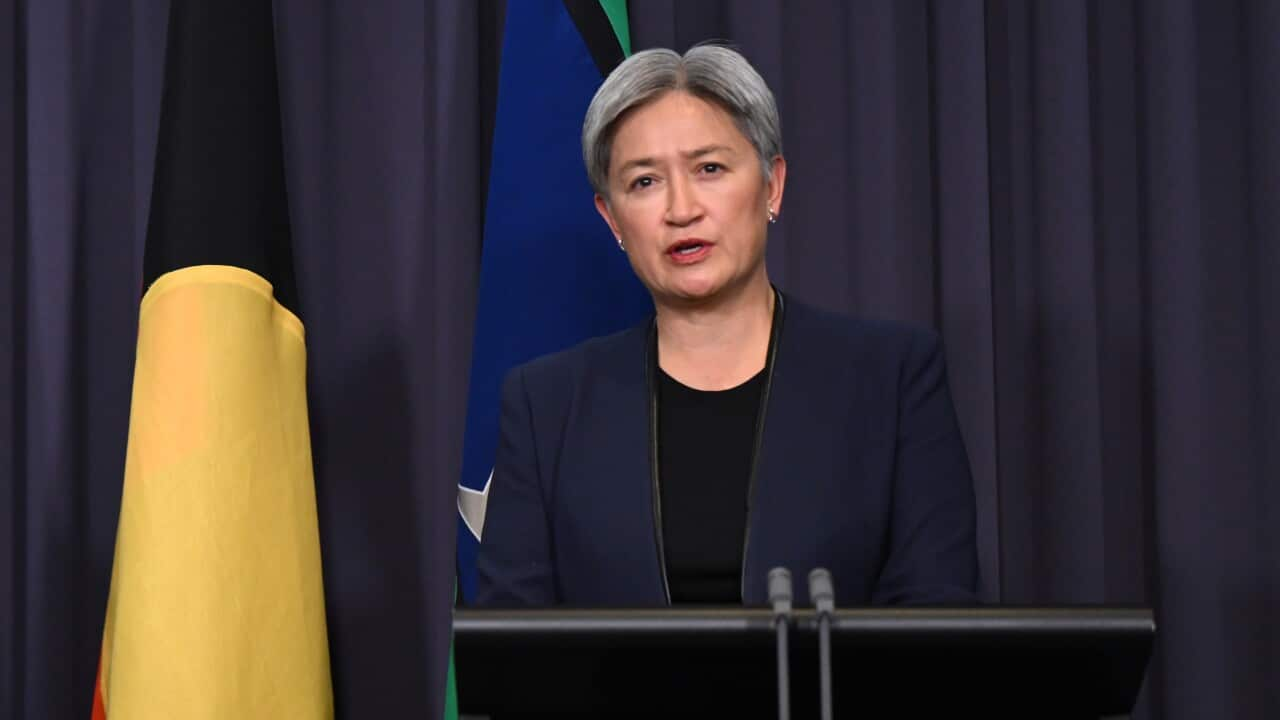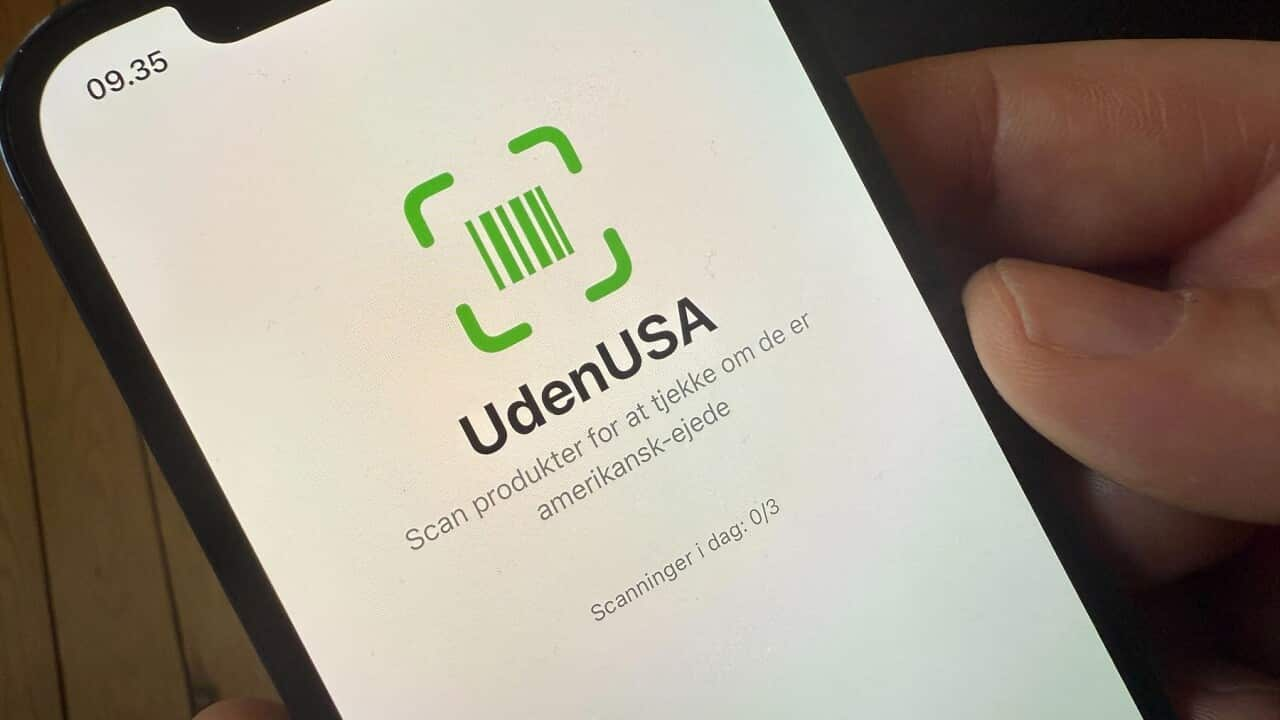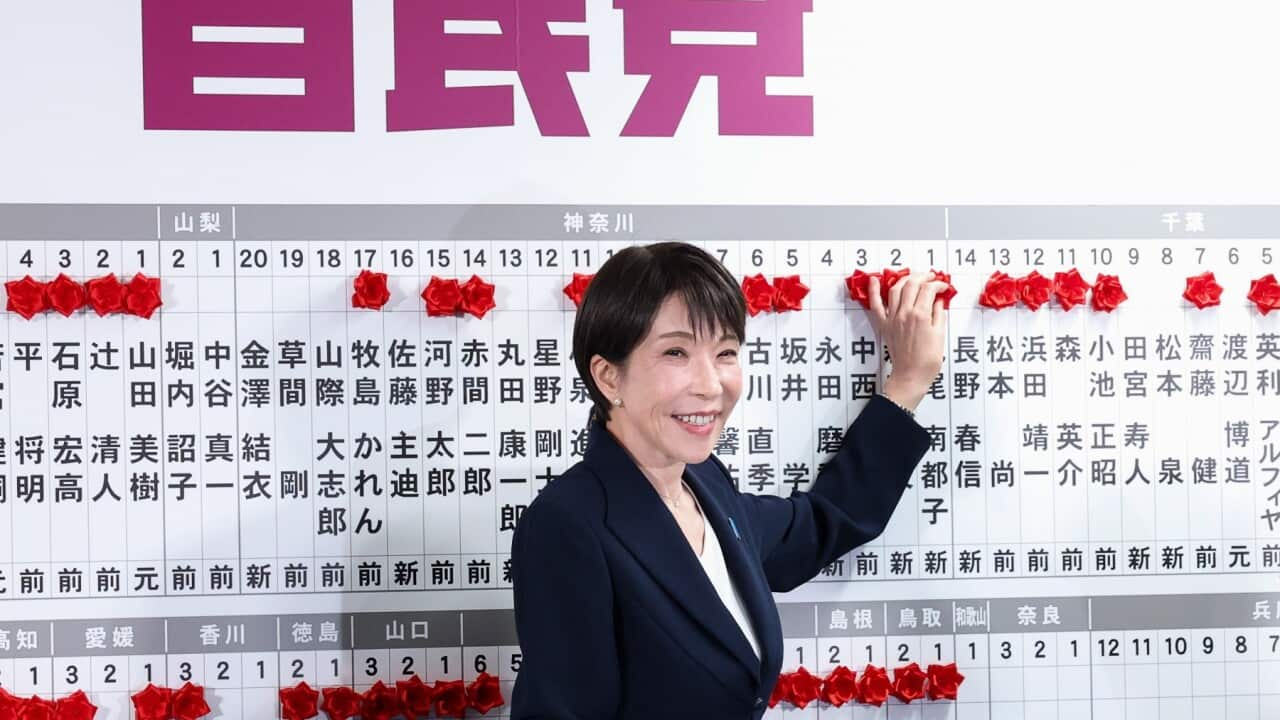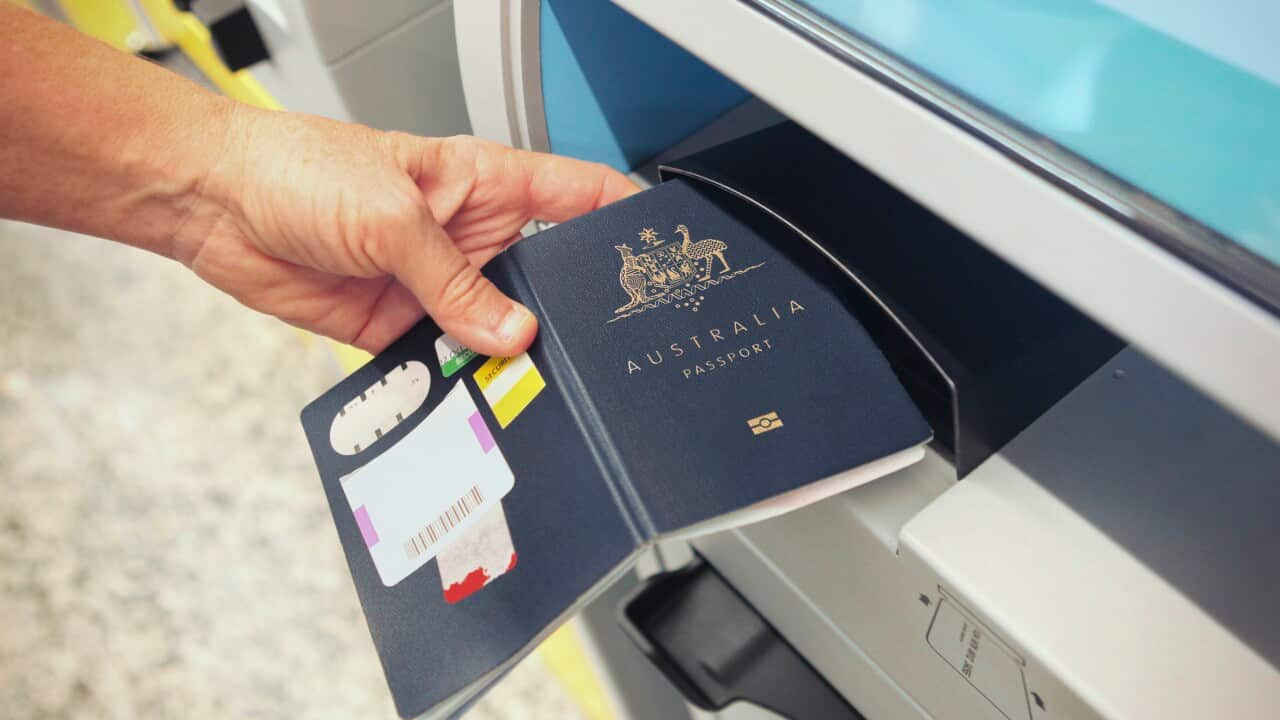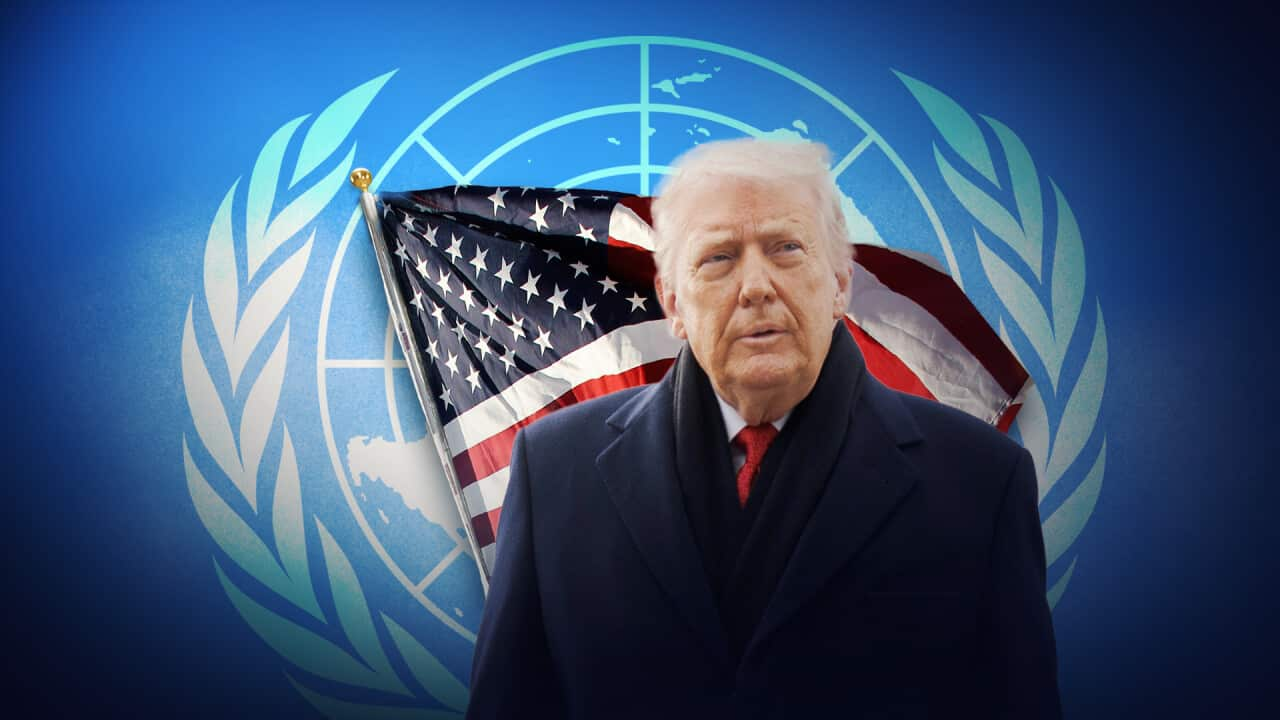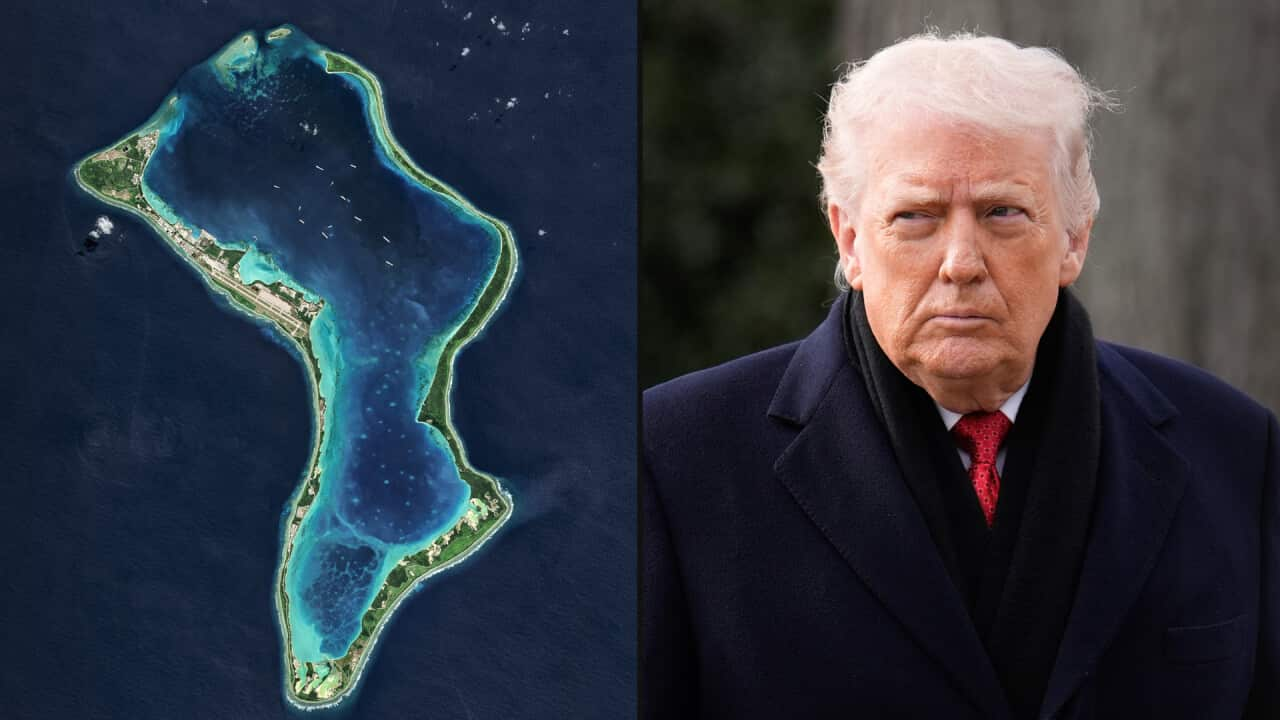Listen to Australian and world news, and follow trending topics with SBS News Podcasts.
TRANSCRIPT
"Three weeks ago, we had the intention of staying in Jerusalem for half the time and then Tel Aviv. Two Fridays ago, when things started to escalate, we cancelled that Tel Aviv trip and have been in Jerusalem ever since, trying to get out."
That's Australian citizen Taiba Ash.
She's one of 119 passengers that left Tel Aviv in the early hours of Wednesday morning on an evacuation flight out of Israel.
Deputy Prime Minister Richard Marles says the group has been relocated to a place within the region that is outside of the danger zone.
Their flight was made possible by a ceasefire struck between Israel and Iran, which State Department spokesperson Tammy Bruce says was brokered by the US on Tuesday (AEST) and allowed for the limited opening of airspace.
"Certainly Israel has agreed to the ceasefire. And, we believe there's a statement from Iran that has done so as well. So those are the statements that we we care about."
The government is still trying to evacuate about 3000 Australians registered for assistance to depart Iran and more than 1000 in Israel.
But while some Australians have been able to leave Israel by air, Foreign Minister Penny Wong says assisted departure flights from Iran have not been not possible.
Still, Iran's ambassador to Australia - Ahmad Sadeghi - has told SBS that he is aware some people are getting out safely by land.
"The Ministry of Foreign Affairs and other organisations facilitated some routes. They couldn't use it to their convenience, either through Iraq and also Turkiye and Armenia and also Azerbijian. I just got such a notice that the Australian DFAT preferred to use the Azerbijan passover. We do have information that they are passing through in safety. My own family was in Tehran on vacation and they are coming back through Turkiye."
The latest conflict erupted on June 13, when Israel fired missiles at Iran in a bid to blow up military assets, arguing it was on the cusp of developing nuclear weapons.
The battle took a turn on the weekend when the US launched a bombing raid on Iran, blowing up three underground nuclear facilities.
The airspace in both countries was subsequently shut to passenger aircraft, leading to Penny Wong ordering the evacuation of the Australian embassy.
"The Australian Government has directed the departure of all Australian officials and dependents, and we have suspended our operations in Tehran."
In his first public comments on the US strikes, Anthony Albanese backed the actions of US President Donald Trump.
"The world has long agreed that Iran cannot be allowed to get a nuclear weapon. And we support action to prevent that. That is what this is."
The Prime Minister says Australia was not briefed on the US strikes beforehand.
And he has not confirmed if Pine Gap - the joint Australian-US intelligence surveillance base located outside Alice Springs - was used in the operation.
"We are upfront but we don't talk about intelligence matters. But I can say this was unilateral action by the United States."
Iran has maintained its nuclear program is for peaceful purposes - but the Australian PM has said he accepts the US government's position that says otherwise.
"The information has been clear that Iran has sought to increase the grade which had been - there's no other explanation for it to reach 60, other than engaging in a programme that wasn't about civilian nuclear power... It was also very clear over a period of time - and as early as last week "
But that's not a view necessarily shared by everyone.
Former Labor Senator Doug Cameron has said it was a mistake to support the US strikes on Iran - and the Labor caucus should be saying so.
"I think they've got a moral responsibility, I think they've got a political responsibility, and I think they've got a responsibility for peace and stability around the world, not just in Australia. They should be raising concerns about the position that's been adopted."
Now the ceasefire has come into effect, Anthony Albanese says he's supportive.
"We continue to call for dialogue and for diplomacy... As I've said for many days now, we are deeply concerned about any escalation in the region, and that's why Australia called upon Iran to come to the table and abandon any nuclear weapons program."
Those calls have continued amid concern the ceasefire is barely holding.
Israel earlier accused Iran of launching missiles into its airspace after the truce was supposed to take effect, while Iran denied launching any strikes and said Israel's attacks had continued for an hour and a half beyond the time the ceasefire was meant to start.
But Richard Marles says Australia will continue to call for calm.
"We very much call on Iran to be restrained in terms of its reaction to this. It matters that we are de-escalating now and that we are pursuing a pathway of peace."
